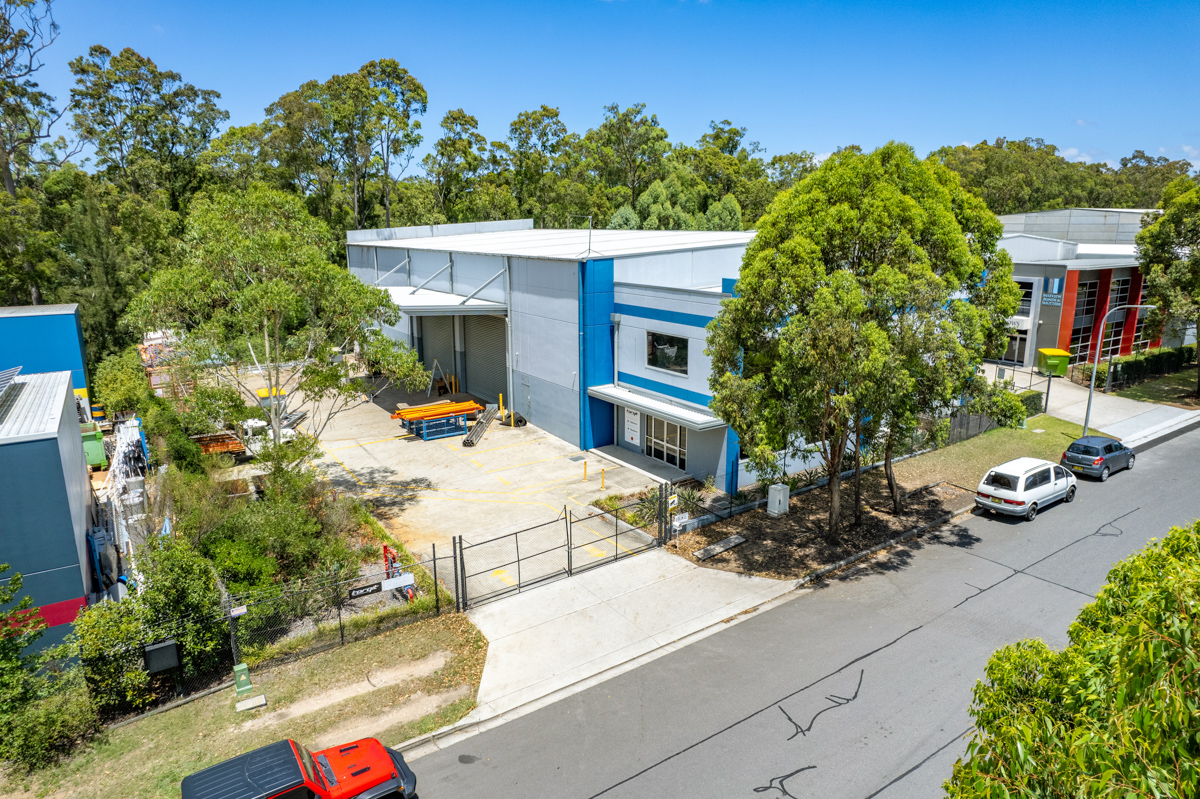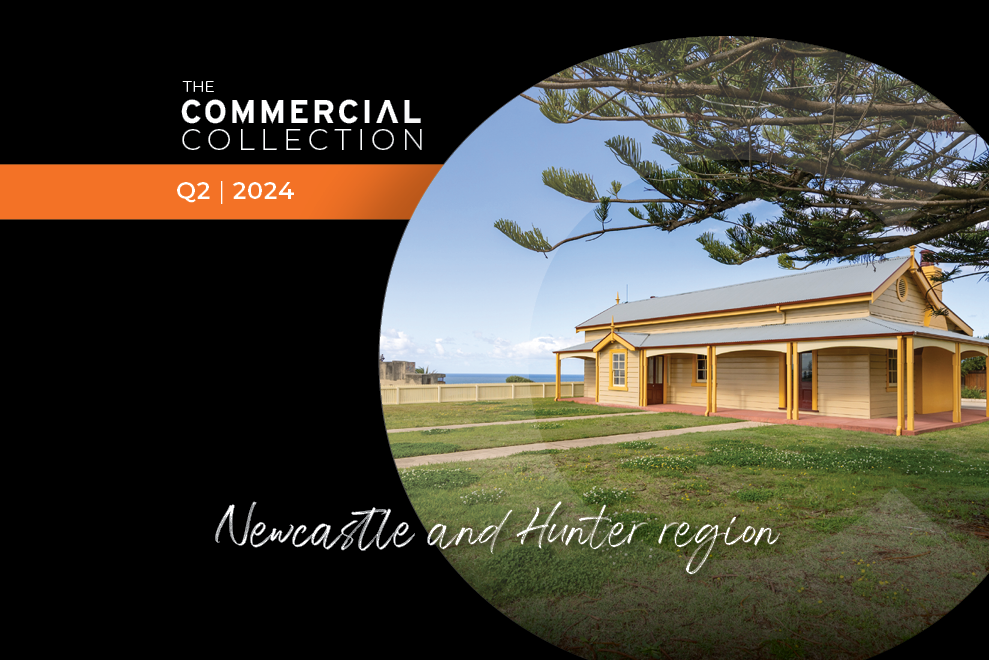
How to structure your commercial property purchase to your advantage
Investing in commercial real estate can be a lucrative venture. However, success often hinges on careful planning and strategic decision-making.
After defining your objectives, determining your budget and finance options and doing your due diligence, a key aspect of a successful commercial property investment is properly structuring the purchase.
But why is structuring so important? And what should you be considering when choosing your ownership structure?
Why is structuring important?
In Australia, you have several legal options for structuring your commercial property purchase, as follows:
- Individual ownership
- Partnership
- Company
- Trust (unit, family)
- Self-managed superfund
Each structure has its advantages and disadvantages in terms of liability, taxation, and management. Choosing the right structure for your situation is critical. That’s because the right structure can:
- Protect your asset
- Reduce tax while you own it
- Reduce tax when you sell it
- Allow you to transfer it easily if you exit (succession planning)
Let’s break these down and look at each in more depth.
Protecting your property asset
Choosing a company, trust, or SMSF ownership structure can help protect your asset. But in what situations would your asset be at risk?
Here are some common ones:
- Economic downturn – During economic recessions or downturns, businesses may struggle, leading to decreased demand for commercial spaces. This can lead to higher vacancy rates, lower rental incomes and a potential decline in property value.
- Interest rate fluctuations – Changes in interest rates can impact the cost of property financing. If rates rise, your mortgage payments could increase, creating financial strain, especially if your rates are variable.
- Tenancy vacancy or default – Losing a tenant can directly impact your rental income. Vacant properties also need more maintenance and may lower in value.
- Market oversaturation – An oversupply of commercial properties can lead to increased competition, lower rental yields and difficulties attracting tenants.
- Zoning and regulatory changes – Changes in zoning regulations or local government policies can impact the permitted use of your commercial property, potentially affecting its value and marketability.
- Natural disasters – Natural disasters like bushfires and floods can damage your commercial property, leading to repair costs and potential disruptions to business operations.
- Financing challenges – Challenges in refinancing or meeting debt obligations can lead to financial distress. Lenders may foreclose on your property, especially if its value is insufficient to cover outstanding debts.
Financing and security requirements play a key role in protecting your assets. The specific requirements will vary based on factors such as your structure, lender, the nature of the property, and your financial profile.
They include your ability to repay, providing financial statements, loan-to-value ratio (LVR), personal guarantees, valuations and insurances.
Tax minimisation during ownership
The right structure can help you reduce the tax you pay on a commercial investment property while you own it.
If your property is purchased as an individual or partnership—the simplest structures—you’ll pay individual tax rates as high as 45%, plus a Medicare levy (generally 2%).
On the other hand, a company ownership structure offers the potential for lower tax rates of 25% or 30%, depending on your circumstances. However, when the after-tax profit is paid to shareholders an additional tax event may apply where the shareholders personal income tax rate is higher than the company rate.
You can also reduce the tax you pay in a family trust structure by distributing income among beneficiaries in lower income brackets or if it’s part of a self-managed super fund (SMSF), which is taxed at 15%.
Capital gains tax discounts when you sell
Certain ownership structures can also help you reduce capital gains tax when you sell your commercial property. These structures include:
- Individuals – You get a 50% discount if you own your asset for more than 12 months.
- Partnerships/trusts – Depending on the structure of the partnership/beneficiary, you may be entitled to a 50% discount if you owned the asset for more than 12 months.
- Self-managed super funds – You get a 33% discount if you own your asset for more than 12 months.
You don’t get any capital gains relief if you choose a company ownership structure.
Pay attention to your land tax threshold
Land tax payable on your property varies depending on the ownership structure and the extent of your other land assets.
Individuals, companies and self-managed super funds are entitled to the land tax threshold (see below). Note that groups of companies with common control may only receive one threshold.
Application of the threshold can be complex for trusts, so it’s best to seek advice to ensure it’s considered and deeds are drafted appropriately.
For land tax purposes, we generally see ‘special trusts’ (family/discretionary trusts and some unit trusts), which do not get the threshold and so pay land tax on every dollar of land value. Or fixed trusts, which get the threshold, but the underlying beneficial owners are then also assessed on their fixed share of the land value, with a credit for land tax paid by the fixed trust.
Land value is calculated on the unimproved capital value determined by the Valuer General to assess land tax. Land tax is levied annually on property you own above the tax threshold at the end of each calendar year.
The current 2023 threshold values are as follows:
- General land threshold: $969,000
- Premium threshold: $5,925,000
The rate of tax you pay is calculated at $100 + 1.6% of land value up to the premium threshold. Above premium, you pay $79,396 plus 2 per cent of land value above the premium threshold.
Easily transfer your property asset
We already touched on the various capital gains tax treatments of structures.
Essentially, your interest in property will be transferred—either a planned exit where you sell all or some of your interest to another party or on death where it needs to be dealt with as part of your estate.
In certain situations, you may want to consider transferring a partial interest in the property as part of your succession strategy, something again that’s impacted by the ownership structure.
So, what should you be aware of when thinking about these scenarios into the future?
Ultimately, if you have an individual or company ownership structure, you’re generally in a clearer position for exit/succession, particularly on death.
- Individual ownership
- Can easily transfer a whole interest or partial interest to another party.
- Beware of stamp duty implications.
- Assets can be specifically bequeathed to beneficiaries under your will. This is a relatively straightforward process for succession. Individuals can also bequeath:
- Shares in a company
- Control of a family trust
- Partnerships – Partnerships can hold assets either as joint tenants or tenants in common. In most cases, assets held by life partners
- As a joint tenant owner, the share of asset is automatically transferred to the remaining owner upon death. Thus, this makes it a very important factor to consider.
- In tenants in common, you can sell your interest independently.
- If an individual partner, you can pass your interest in the property to your beneficiaries in your will.
- If a partner is not an individual, the factors below would come into play.
- Company – The rights, titles and interest can be transferred by the company selling the underlying asset or by bringing in new shareholders (transfer of existing shares or issue of new shares).
- On death, you can leave your shares in the company to your beneficiaries under your will, effectively transferring them the underlying property.
- In general planned succession, you could bring in a new shareholder to transfer them an interest in the underlying assets.
- Can easily transfer a whole interest or partial interest to another party.
The process is more complex if you have a family trust or SMSF ownership structure. Seeking professional advice throughout is crucial to ensure all requirements are met and compliant.
Pay attention and raise queries
As you can see, structuring your commercial property purchase isn’t a one-size-fits-all thing. It's a dynamic process that demands continuous evaluation and adaptation to changing circumstances.
As you embark on or enhance your commercial property investment journey, take notice of the entity being used for purchase and raise any queries or concerns if needed.
If you would like advice on your specific commercial property purchase and situation, contact the friendly and experienced team at Maxim Advisors.
Maxim Advisors is one of Newcastle’s largest locally-owned accounting and advisory firms. By taking the time to understand their business clients — by building relationships, asking hard questions, giving honest feedback and challenging you — they can help you achieve your goals and live the life you want.
(02) 4925 1000| Visit website





